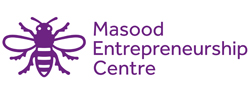Fintech start ups have been revolutionising the financial industry, making it easier and more convenient for people to handle their money. Today, there are a plethora of fintech start ups offering various services, from money transfer to payment processing and more.
In this article, we will delve deeper into some of the most common financial technologies used by these startups.
Money transfer
One of the most common services provided by fintech start ups is money transfer. In the past, transferring money between different countries was a complicated process that required a lot of time and money. However, fintech start ups have made this process much easier by utilising different transfer methods such as SEPA, SWIFT, Faster Payments, and CHAPS.
SEPA, or Single Euro Payments Area, is a system used for transferring euro-denominated payments within the European Union. It allows for quick and secure transfers between bank accounts in different member states. SEPA transfers are usually processed within one business day and are relatively inexpensive.
SWIFT, or Society for Worldwide Interbank Financial Telecommunication, is a global network used for international money transfers. It is widely used by banks and financial institutions to transfer funds across borders. SWIFT transfers can take several days to complete, and they are usually more expensive than SEPA transfers.
Faster Payments is a UK-based system that enables near-instantaneous money transfers between bank accounts. It is commonly used for domestic transfers within the UK, and it is available 24/7. Faster Payments transfers are usually processed within a few hours, and they are relatively inexpensive.
CHAPS, or Clearing House Automated Payment System, is a UK-based system used for high-value payments. It is commonly used for large transfers, such as property purchases or business transactions. CHAPS transfers are usually processed on the same day, and they are more expensive than other transfer methods.
Payment processing
Payment processing is another common service provided by fintech start ups. Payment processing involves the handling of electronic payments, such as credit and debit card transactions. Fintech start ups use payment gateways to process these payments securely and efficiently.
A payment gateway is a software application that connects merchants to payment processors. It allows merchants to accept payments from customers and transfer them to their bank accounts. Payment gateways are typically provided as a service by fintech start ups, and they charge a fee for each transaction processed.
Banking white label software
Fintech start ups also offer banking white-label software, which is a type of software that enables businesses to offer banking services under their own brand. This software includes various features such as account management, payment processing, and money transfer.
White-label banking software is provided by fintech start ups to businesses that want to offer banking services without investing in their own infrastructure. This allows businesses to offer banking services quickly and cost-effectively. Fintech startups typically charge a fee for the use of their white label software.
Examples of successful fintech start ups
To further illustrate the use of financial technology in start ups, let's take a closer look at two successful examples: exactly.com and stripe.com.
Exactly.com
Exactly is a fintech start up that provides payment processing, payment gateway, and open banking services. Their platform allows businesses to manage their payments, compliance, and risk through a single API. This enables businesses to accept payments globally, manage fraud and compliance, and gain access to banking infrastructure quickly and easily.
Payment processing
Exactly offers payment processing services that allow businesses to accept payments from various sources, such as credit and debit cards, digital wallets, bank transfers, and more. Their platform provides fraud and compliance management tools that help businesses mitigate risk and comply with regulations.
Payment gateway
Exactly's payment gateway is a software application that allows businesses to accept payments through their websites or mobile apps. Their platform offers various customisation options and supports multiple currencies and payment methods.
Open banking
Exactly's open banking services enable businesses to access banking infrastructure through APIs. This allows businesses to offer banking services, such as account management, money transfers, and more, under their own brand.
Stripe.com
Stripe is another fintech start up that offers various payment-related services, including payments, checkout, billing, and invoices. Their platform allows businesses of all sizes to accept payments online, manage subscriptions, and more.
Payments
Stripe offers payment processing services that enable businesses to accept payments from various sources, such as credit and debit cards, digital wallets, bank transfers, and more. Their platform supports multiple currencies and payment methods, making it easier for businesses to reach a global audience.
Checkout
Stripe's checkout service is a software application that allows businesses to accept payments through their websites or mobile apps. Their checkout process is designed to be simple and user-friendly, with various customisation options available.
Billing
Stripe's billing service enables businesses to manage recurring payments, subscriptions, and invoices. Their platform provides tools that allow businesses to automate billing, manage customer subscriptions, and more.
Invoices
Stripe's invoicing service enables businesses to create and send invoices to their customers. Their platform provides various customisation options, such as branding and invoice design, as well as tools that allow businesses to track invoice status and payment history.
Conclusion
Fintech start ups have been disrupting the financial industry by offering innovative solutions to traditional banking services. Money transfer services using SEPA, SWIFT, Faster Payments, and CHAPS have made it easier for people to transfer money globally.
Payment processing and payment gateway services have enabled businesses to accept electronic payments efficiently and securely.
Finally, white-label banking software has enabled businesses to offer banking services quickly and cost-effectively. The fintech industry continues to evolve, and it will be interesting to see what new innovations will emerge in the future.
Copyright 2023. Guest post













